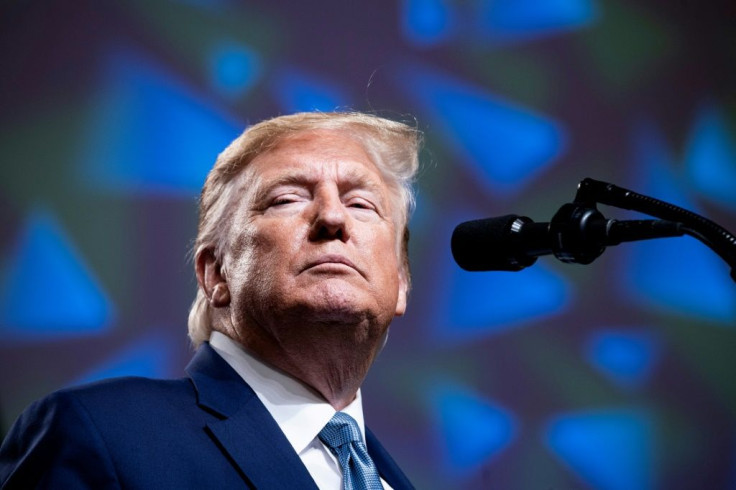Trump Held Criminal Justice Event At Historically Black College, Only 7 Students Showed Up

President Donald Trump held an event Friday at South Carolina's Benedict College, a historically black university, in an effort to tout the administration's work on criminal justice reform and to reach out to a different audience. Yet only seven of the school's 2,100 students actually attended the event.
Students and faculty had been told to stay inside, with the White House managing control over the event.
Protesters demonstrated outside of the school auditorium, while Trump supporters were also present for a counter-demonstration.
Trump's speech touched on how the U.S. government should devote more resources to "American communities" and that "for decades, politicians of both parties, put their own interests over your interests."
Trump was also awarded a Bipartisan Justice Award for signing the First Step Act into law last year. First Step stands for Formerly Incarcerated Reenter Society Transformed Safely Transitioning Every Person. The legislation aims to lower the percentage of recidivism among former prisoners, focusing on rehabilitation and providing opportunities for them to reintegrate back into the workforce.
Tanesha Bannister thanked Trump for signing the legislation and said that "if it weren't for you, Mr. President, I would still be serving five years in prison."
Trump has frequently touted the economy and a low black unemployment rate as reasons why he is a friend to the black community.
The event comes as Trump recently compared the House's impeachment inquiry to a "lynching." He has also made disparaging comments about four young minority congresswomen as well as slammed congressional districts with large black communities.
He has also faced several controversies involving his views on race before taking office. In the late 1980s, he was the subject of criticism for his handling of the Central Park Five, which involved five Latino and black teens accused of raping a woman in New York's Central Park and were later exonerated due to DNA evidence. Trump at the time had taken out full-page ads in four newspapers accusing the teens of the crime and calling for the death penalty. He still refuses to say he is wrong on the issue.
During testimony before the House Oversight Committee, Trump's former personal attorney Michael Cohen said Trump often made racist references prior to taking office.
© Copyright IBTimes 2025. All rights reserved.





















